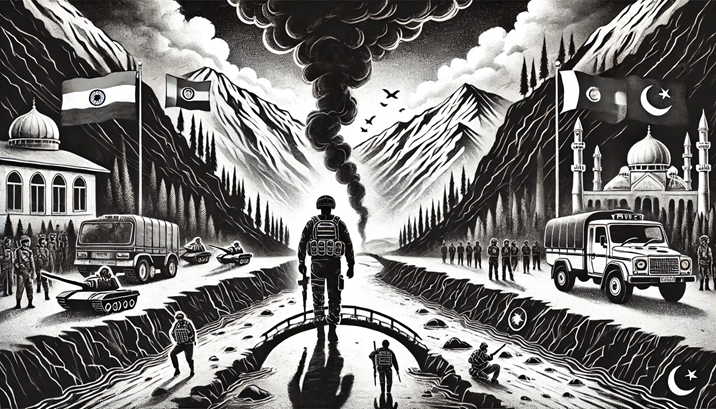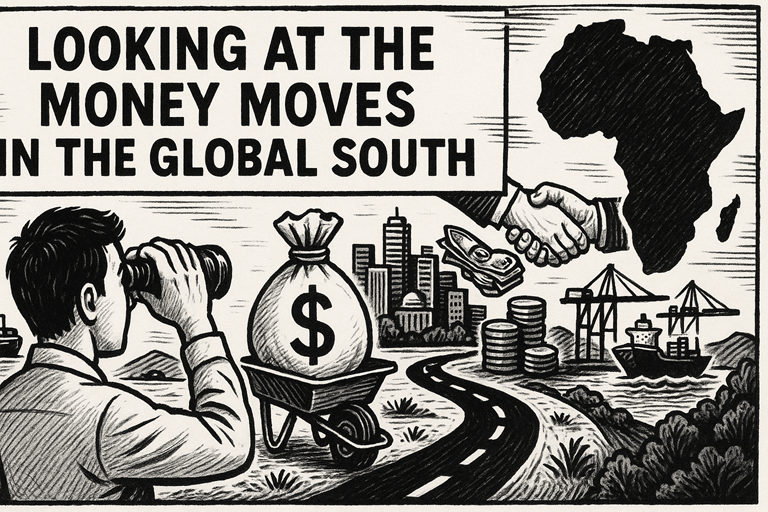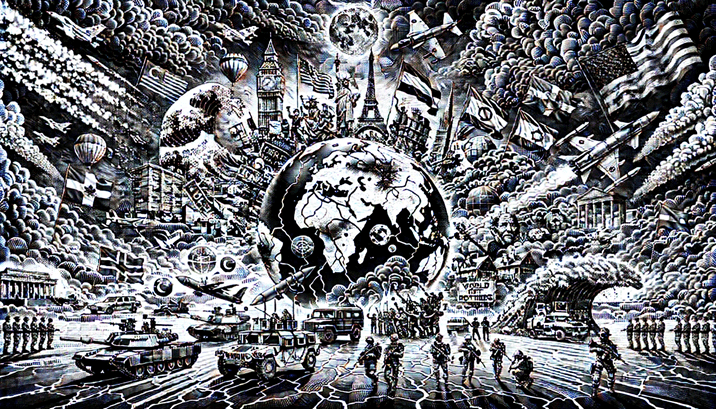That doesn’t mean we have to reject AI in War or hold on to old-fashioned ways of making decisions. Instead, it means building systems where humans and machines work together—each doing what they’re best at, while making up for each other’s weaknesses.
Read moreCategory: Middle East
News and Analyses of events in the Middle East
Fighting Terrorism, Political Games, and Global Power Struggles
Terrorism in the next decade will be closely tied to digital technology and global politics. Countries will use counterterrorism both as a defensive shield and an offensive tool. Expect to see more data-sharing, AI tools, and international forums working together. But also expect more covert actions and propaganda dressed up as counterterrorism. The big challenge for governments will be to separate real security needs from political games. As experts warn, terrorism isn’t going away—but it’s not one single thing, and it’s often shaped by the larger power struggles playing out behind the scenes. The most important task will be keeping counterterrorism rooted in facts and human rights, not just strategy.
Read moreThe Pahalgam Attack: Indus Waters Treaty and Deep Crisis in India-Pakistan Relations
The Pahalgam attack and India’s strong reaction have pushed South Asia into completely new and uncertain territory. India wants to send a clear message to Pakistan, but by suspending the Indus Waters Treaty, it may actually make things worse—fueling anger and potentially pushing more young people toward extremism. For the 1.8 billion people living in the region, any war would come at an enormous cost: economic collapse, a refugee crisis, and even the threat of nuclear conflict. No one would truly win.
Read moreLooking at the Money Moves in the Global South
The Global South often has lower levels of economic development, and that’s made it a major area of interest for big global powers. China launched its Belt and Road Initiative (BRI) in 2013, a huge infrastructure push worth over $1 trillion. The goal is to connect parts of Asia, Africa, and Europe through railways, roads, ports, and more—mostly funded by loans from China.
Read moreA Closer Look at How Geography Still Shapes Global Power
Geography still plays a major role in global politics, just like the old theories from Mahan and Mackinder said. Controlling important sea routes, land corridors, and key natural resources is still essential for countries to stay powerful and influential.
Read moreIsrael vs. Iran: Drones, Nukes, and the Brink of Chaos
How things play out depends on whether countries choose diplomacy or confrontation. A new deal could limit Iran’s nuclear stockpile and bring back international inspections, which might calm things down. But if Israel decides to attack Iran’s nuclear sites, and Iran responds through its allies or directly, it could turn into a much bigger war—possibly pulling in countries like the US, Russia, and others.
Read moreTop 10 Affairs That Could Start World War 3 in 5 Years
The chance of a major global war between 2025 and 2030 is real. The most dangerous flashpoints are the Taiwan Strait and the Israel-Iran conflict. The Russia-NATO situation also remains risky. Other threats—like cyberattacks, climate change, economic troubles, and local wars in Africa—may seem smaller but can grow fast, especially if big countries get involved.
Read moreA Simple Look at Geoeconomics and How Trade is Used as a Weapon
Geoeconomics—using trade and money as tools for global influence—is changing how countries deal with each other. Whether it’s the US-China trade war, the sanctions on Russia, or China’s investments through the BRI, all of these examples show the different ways countries are using economic strategies to get ahead.
Read moreFinancial Shifts in the New Cold War
The world’s financial system is quietly going through major changes. Many people are calling it a “New Financial Cold War.” What’s happening is that countries like China, Russia, and others are trying to rely less on the U.S. dollar. They want more control over their own money systems, especially as tensions with the U.S. rise and sanctions become more common.
Read moreHow the Strategic Revival of Russia, China, and Iran is Redrawing Eurasia
Russia, China, and Iran have been stepping up their military teamwork in recent years. They now hold regular joint naval drills, like “Security Bond-2023” and “Marine Security Belt 2024” in the Gulf of Oman. These exercises include warships and aircraft from all three countries, covering huge areas of sea to practice fighting terrorism and protecting trade routes. Other countries, like Pakistan and India, even sent observers in 2024.
Read more









